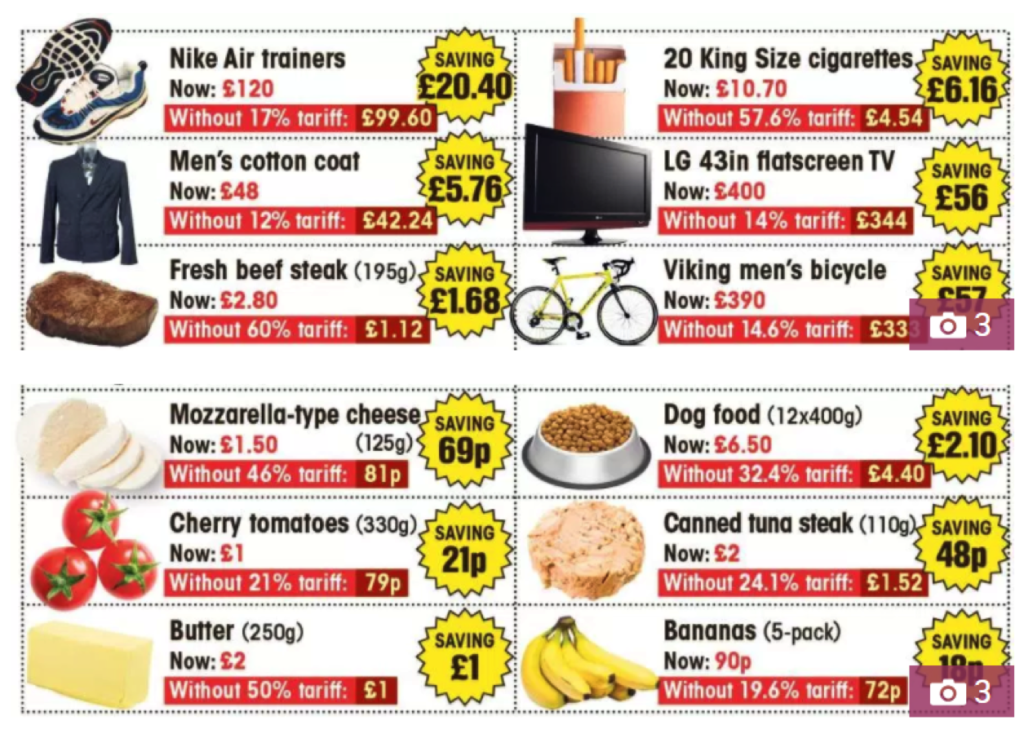Jacob Rees-Mogg heaped praise on an article in the Sun this week which calculated big price cuts that consumers would allegedly enjoy if we quit the EU’s customs union. The snag is the tabloid got its sums wrong. It doesn’t seem to be able to do basic percentages. The paper has since deleted the offending article.
The Sun illustrated its story with this picture:

Can you spot the problem? Hint: if you charge a 50% tariff on butter that costs £1, then the price would be £1.50. Not £2.
But the Brexiters’ problem is bigger than getting their sums wrong. Their argument is riddled with faulty logic too. Prices are actually more likely to go up than fall if we quit the customs union. That’s on top of the price hikes consumers have already had to suffer because the referendum vote triggered a plunge in the pound that jacked up the cost of imports.
Rees-Mogg told the BBC’s Today programme last week (2:36): “If we remain in the customs union… we will be subject to the Common External Tariff, and that means higher prices for food, clothing and footwear”. Matt Ridley made a similar point in the Times.
These arguments assume that Britain would slash tariffs unilaterally post-Brexit. The problem for the Brexit extremists is that even our misguided government isn’t prepared to adopt such a policy.
Without slashing tariffs, leaving the customs union could mean we face higher prices on the high street. Under World Trade Organisation rules, we must charge all countries the same tariff unless we sign a trade deal with them. If we were unable to conclude a deal with the EU, we would have to apply tariffs on imports from it that currently flow unhindered – raising prices. That means more expensive food, cars and so forth.
Of course, Rees-Mogg may hope to overturn government policy and slash tariffs unilaterally. That’s the trade equivalent of unilateral disarmament – something Tories normally don’t think is a good idea. It would mean we wouldn’t be in a good position to get other countries to drop their tariffs on our exports when we try to cut deals with them – after all, their exports to already wouldn’t face tariffs.
There’s also another problem. The Brexiters’ favourite economist, Patrick Minford, believes a policy of unilateral free trade would “mostly eliminate manufacturing” – but he’s totally happy with the outcome. If that’s what Rees-Mogg also wants, he should have the honesty to say so.
Edited by Hugo Dixon

